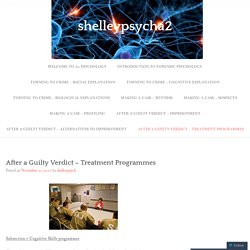

Presentation 100. 84c9094d1a1fee4194d9cf51a83eb760. Presentation 100. Presentation 100. Year 12 Tutor SOW September to Christmas 2017. Prep for SSAT 2 2. 17.11.16. Presentation. Year 2 SOW. Behaviourism. Presentation 33. The right stats. test. Behaviourism 12c. Psychodynamic Approach Rebecca, Bryonny & Shannon. Humanistic psychology Shayla, Katie, Sarah & Georgia. Humanistic. Student Scheme of Work 2016 17 year 1. G544 MS June15.
Forensics. Health. A2 Issues & Debates. G544 past exams, Mark schemes and examiners reports. Research Methods. A2 exam prep. AS Physiological Psychology. AS Developmental Psychology. AS exam prep. AS Individual Differences Psychology. Summer Scheme of work for A2 students. AS Cognitive Psychology. AS Social Psychology. SOW. FUTURES IN ART. Extended Project. Be a better writer in 15 minutes: 4 TED-Ed lessons on grammar and word choice. There’s no denying it — the English language can be mighty tricky.

When writing a paper, a novel or even an e-mail, you might look at a sentence you just wrote and think, “Is that comma supposed to be there?” Or “Is that really the best word to use?” Fear not! TED-Ed has put together a list of four of our favorite grammar and language lessons to get your next piece of writing in tip-top shape. First, let’s look at the often-confusing comma. What about the Oxford comma? Now, take an adjective such as “implacable” or a verb like “proliferate” or even another noun “crony,” and add a suffix, such as “-ity” or “-tion” or “-ism.”
Finally, when it comes to good writing, don’t take the easy route! Ntent. Hindsight is a wonderful thing.

Lots of people (this writer included) get to the end of A-levels and think: "If I'd really known how big a step-up those would be from GCSE, I would have done a lot better". We're guessing you don't want that to be you. We're presuming you'd rather reach A-level results day and think: "Yep, I did really well here, and I deserve it. " Which is why we asked all the former A-level students in the TSR community to share their advice on getting started.
What do they wish they'd been told when they were starting their A-levels? Use the past papers Utilise all the past papers, answer schemes and examiners reports available. Make lots of notes Make revision notes as you go through topics - although you may think it's a lot of work it will help immensely as you will make your notes with the work fresh in your head and then when it comes to exam time you'll be really well prepared and won't have to panic.
Be prepared to work at home. Fascinating psych experiments. OCR - awarding body for A Levels, GCSEs, Cambridge Nationals, Cambridge Technicals and other qualifications. After a Guilty Verdict – Treatment Programmes. Subsection = Cognitive Skills programmes The recidivism rate in the UK is approximately 64%.

In order to break the ‘revolving door’ phenomenon of repeat offending, effective treatment and rehabilitation programmes are needed. Unfortunately, spending money on helping prisoners is not seen as a priority by governments and tax payers. This is short-sighted, however, as breaking the cycle of re-offending is a major step towards reducing crime. In HM Prison Service in England and Wales today there are 13 types of Offender Behaviour Programmes being used, including anger management programmes such as CALM (see “anger management subsection below) and also cognitive skills programmes such as Enhanced Thinking Skills (ETS), which we will investigate in this subsection.